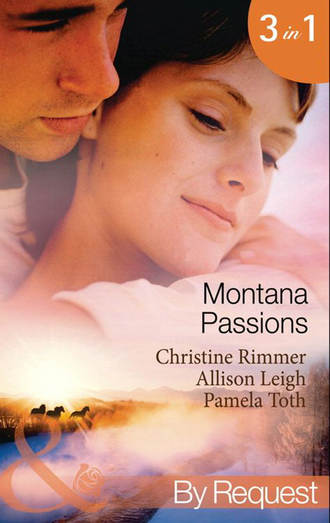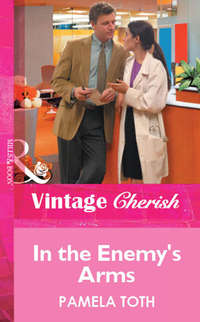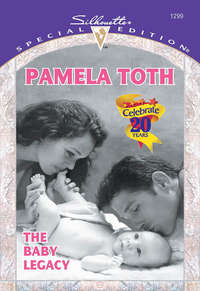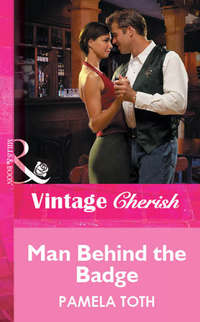
Полная версия
Montana Passions: Stranded With the Groom / All He Ever Wanted / Prescription: Love
Justin scanned the small room. “Any plugs in here?”
“Just the one in the light.” They both looked up at the bare bulb above. The cord wouldn’t stretch that far. “Why don’t we take it with us out front?”
“Fine,” he said, glancing around. “Lots of clothes in these bags…” They shared another look and she knew they were thinking along the same lines. If they didn’t get out of here soon, they could always go through the bags, maybe find something more comfortable to wear.
The idea depressed her—that they might be stuck here long enough to need a change of clothes.
“Look at it this way,” he advised gently. “We’re safe and warm. And we’ve got plenty of sandwiches.”
They took the radio out through the silent display rooms to the front. Justin plugged it in and turned the dial. Nothing but static.
Thoroughly discouraged, Katie went to the window again. She wrapped her arms around herself and stared out for a while at the steadily falling snow.
Justin spoke from behind her. “Those old beds in the center display room…”
She faced him. They shared a grim look.
He asked, “Are you thinking what I’m thinking?”
Her nod was resigned. “It does begin to look as if they’re going to get some use tonight.”
Past midnight, Justin Caldwell lay wide-awake staring at the shadowed rafters in the museum’s central room. He’d taken the narrow, hard little cot in the one-room pioneer cabin display and stretched out, fully clothed but for those damn too-small boots, under the star-patterned quilt. He’d had to pull out the sheet at the bottom of the bed. It was too short by a foot and his stocking feet hung out over the edge.
But at least the bedding was clean. Katie had told him it was all antique stuff donated by local families. The Historical Society took pains to keep it laundered and in good repair.
Katie…
He could hear her soft breathing from the “bedroom” on the opposite wall, where she lay in a wide four-poster with pineapple finials that some pioneer family had probably dragged across the plains in a covered wagon. He smiled to himself.
She was…a surprise. A quiet woman; selfcontained. With those wide honey-brown eyes, that tender mouth and the shy way she had about her, she seemed, in some ways, so young—younger than her age, which he knew was twenty-four.
Yes. Very young. And yet, at the same time, she had that self-possessed quality that made her, somehow, seem older.
He knew much more than she’d told him so far. He’d paid and paid well to learn all about her—and about Caleb, Adele and Riley Douglas, as well.
Katherine Adele Fenton was the only child of the jet-setting Paris and Darrin Fenton. She’d been born in Venice, Italy—and immediately turned over to a nanny. Into her teens, Katie hardly saw her parents. She was fourteen and living a sheltered life with a governess in London when both Paris and Darrin died tragically; their private plane crashed on the way to a society wedding.
That was where the Douglases came in. As Katie’s godmother, Adele had gone back east to claim the orphaned child of her dear college friend.
From what Justin had been able to learn, the Douglases considered Katie one of their own. She was, though not by blood, a full-fledged member of their family. She was the daughter Adele Douglas never had. Though he’d taken her into his home and treated her as family, Caleb had never made any effort to lay claim to a red cent of Katie’s considerable inheritance. And from what Justin knew of Caleb Douglas—who loved nothing so much as making big deals involving large sums of money—that was saying something.
Justin pushed back the quilt. When he returned to the hard pallet laughingly called a bed, he’d leave off the blankets. The old building’s heating system seemed to have one temperature: high. He sat and swung his legs soundlessly to the floor.
Rising, he ducked under the rope that was supposed to keep visitors away from the displays, and went to the door that led out to the reception area. It opened soundlessly and he shut it without letting the latch click.
In the men’s room off the reception area, he flicked on the light and used the urinal. At the sink, he splashed cold water on his face and avoided meeting his own eyes in the mirror.
Back in the reception area, he stood by the window. The snow was still coming down. It lay, thick and white and sparkling, covering the steps up to porch level.
If it kept up like this, they could be stuck here for a day or two. Maybe longer. Who the hell knew?
Lots of time alone, just him and Katie…
Though he generally preferred a more outgoing, sophisticated type of woman, he was drawn to her. In the end, he supposed, there was no predicting sexual chemistry.
She felt attracted to him, too. He’d seen it in those big brown eyes of hers, known it in the way her body softened and melted into him during that kiss that had sealed their fake vows back there at the town hall.
Maybe he had something here. Maybe he ought to consider taking advantage of the way this sudden winter storm had thrown them together.
But he would have to watch himself. He couldn’t let things get too hot and heavy. He had nothing with him to protect her from pregnancy and he’d have wagered half his assets that Katie Fenton wasn’t on the pill.
No. He couldn’t take the chance that she might become pregnant. He’d grown up without a father and he knew what that could do to a kid.
But he could certainly draw her out a little. No doubt she knew things about the Douglases—things that even his expert, high-priced sources couldn’t have dug up. Knowledge was power and the more he had of it, the better his position would be in this special game he was playing.
And in spite of her wariness, Katie should be approachable if he took the right tact with her—if he were frank and friendly; helpful and easygoing…
It wouldn’t have to go too far. Just enough for her to trust him, to tell him her secrets—and those of the Douglases. Just enough that she would believe in him as a man. Just enough that she’d come to…care for him.
In the end, if he worked it right, she’d be brokenhearted. He regretted that. But when it came time for payback, a man had to accept some degree of collateral damage. She would be hurt—and the people who cared most about her would hurt for her. It would add a certain…turn of the knife, you might say.
Justin flicked off the porch light. No need for it at this late hour. The window became a dark mirror. He saw his own reflection faintly, a lurking shadow in the glass.
Hell.
Maybe not.
He’d always been a man who did what needed doing. Still, he was having a little trouble getting around the fact that Katie Fenton was a good woman. An innocent in all this.
He should leave her out of it.
But then, if it worked out according to plan, he wouldn’t be hurting her that bad. Just a little. Just enough to get to Caleb. She’d get over it in time.
And there was no saying that he could even fool her. She might be innocent, but she was also smart. It was just possible she’d see him coming and refuse to let him get close enough to make her care. They’d be locked in here for a day or two and she would merely tolerate him until their time of forced proximity had passed. She’d escape unscathed.
Maybe.
But then again, there was the real attraction between them. If he let himself go with that, he wouldn’t be faking it. And he would tell her the truth—just not all of it.
Taking it forward from that angle…
Say it was all the same, except for the fact that she’d been raised by the Douglases. Say she was only the town librarian playing the mail-order bride and he’d been a stranger talked into taking the part of her groom. Say they ended up here, alone, snowed in at the museum, just as they had.
Take away her connection to the Douglases and he would still be intrigued with her, would still want to pursue her, to hear her secrets, to hold her in his arms and steal a kiss or two.
So in the end, he would only be doing what he would have done, anyway: getting to know a woman who interested him.
Yes. He could look at it that way. He could take it from there and go with it. Be friendly and open and willing to talk about himself—to hear about her and her life and the people she cared for.
Maybe nothing would come of it.
Or maybe, in the end, he’d have found a second, more personal way to make Caleb Douglas pay for his sins.
Chapter Three
Katie woke to the smell of coffee brewing.
That was the good news.
Everything else? Not nearly so pleasant. Her mouth tasted like the bottom of someone’s old shoe. Her wrinkled wool dress gave off a distinctly musty odor. And she had a crick in her neck from sleeping on a too-fat pillow.
She let out a loud, grumpy groan—and then snapped her mouth shut. After all, there was a virtual stranger in the bed across the way—or wait. Probably not. He must be the one who’d made the coffee.
Katie sat up. She’d left the dimmer set to low, so the light was minimal, but she could see that Justin Caldwell’s narrow cot lay empty, the covers pulled up and neatly tucked in.
Anxious, suddenly, to know what time it was, to find out if the storm had ended, if it might be possible that she could go home to her own comfy house on Cedar Street, Katie threw back the covers and jumped from the old bed. Ducking under the rope that marked off her “room,” she pulled open the door to the reception area—and blinked at what she saw.
Beyond the windows, a wall of snow gleamed at her in the gray light of a cloud-thick Sunday morning. It was piled above the porch floor now. Though the wild winds of last night had died in the darkness, the snow itself continued to fall, a filmy white curtain, whispering its way down.
The clock on the wall read seven-fifteen. She picked up the phone. Silence. With a heavy sigh, she set it down again and headed for the ladies’ room, where she used the facilities, rinsed her face and made a brave effort to comb her tangled hair with her fingers.
Snowed-in without even a hairbrush. Definitely not her idea of a good time.
In the kitchen, Katie found Justin sitting at the table by the window, wearing jeans and a cable-knit red and green sweater with reindeer leaping in a line across his broad chest. On his feet were a battered pair of black-and-white lace-up canvas All-Stars.
“It’s true,” he announced at her look. “I have raided the rummage sale bags and I feel no shame.”
“Love the sweater,” she muttered glumly. “Phone’s still dead.” Beyond him, out the window, the snow kept coming down. “They won’t even be able to get the plow out in this.”
“Relax,” he advised with an easy shrug. “Have some coffee.” He toasted her with his stoneware mug. “I even found a smaller pot, so we don’t have to brew it up for a hundred every time we want a cup.” He gestured at the plateful of sandwiches on the table. “And did I mention there are plenty of sandwiches?”
“Wonderful.” She padded to the counter, poured herself some coffee, added cream from the carton in the fridge and plunked herself down in the chair opposite him.
“Better?” he asked after she’d taken a sip.
“A little. Though I’d give a good number of stale sandwiches for a toothbrush. And a comb.” She put a hand to her tangled hair. “If we’re stuck here much longer, I may consider raiding the museum displays for some long-gone pioneer lady’s sterling silver dresser set.”
He looked very pleased with himself—and, now she thought about it, he looked as if he’d shaved. And his hair was wet—was that shampoo she smelled?
She set down her cup. “You found a razor in the rummage sale bags—and you washed your hair.”
He laughed. It was a low, velvety kind of sound and it played along her skin like a physical caress. “Was that an accusation?”
She sat back in her chair and regarded him with suspicion. “You’re much too cheerful.”
“And you are very cranky.” He took another bite of his sandwich, chewed and swallowed. “If you don’t be nice, I won’t let you have what’s in that bag over by the sink.”
She glanced where he’d indicated. The bag sat near the edge: a plain brown paper bag. “What’s in it?”
He pushed the plate of sandwiches toward her. “Eat first.”
She reached for a sandwich, raised it to her lips—and lowered it without taking a bite. “Just tell me. Is there a hairbrush in there?”
He nodded. “More than one. And combs. And a few toothbrushes—still wrapped in cellophane. And travel-size toothpaste. And sample bottles of shampoo and lotion, boxed-up shower caps and miniature bars of soap—oh, and did I mention razors and travel-size shaving cream cans? Looks like someone held up a drugstore, raided a motel supply closet and gave what they stole to the Historical Society rummage sale.”
“Shower caps,” Katie repeated wistfully.
Justin grunted. “Yeah. No need for those.”
“Since we don’t have a shower.”
“But remember. It could be worse. The heat could be out and there could be no wood for the stove. The ladies from the Historical Society could have failed to leave us these delicious sandwiches.” He waved one at her.
“You have a surprisingly vivid imagination.”
“Thank you. And what I meant is, we’re doing okay here. And after you eat, you even get to brush your teeth.”
She supposed he had a point. “You’re right. I should take my own advice from yesterday and keep a more positive outlook on our situation.”
He faked a stern expression. “See that you do.”
Katie ate her sandwich and took a second, as well. Her spirits had lifted. If she wasn’t getting out of here today, at least she’d have clean teeth and combed hair.
Once she’d spent twenty minutes in the ladies’ room using various items from the brown paper bag, Katie went to the storage area and chose a bulky sweater and a pair of worn corduroy pants. She even found thick gray socks and jogging shoes that were only a half size too big.
“Lookin’ good,” Justin remarked with a wink when she returned to the kitchen where he sat reading yesterday’s newspaper.
“The fit leaves something to be desired—but I have to admit, I’m a lot more comfortable.”
“And less cranky.”
“Yes. That, too.” She gave him a smile, thinking how even-tempered and helpful he’d been since she got them into this mess. Really, she could have been stranded with worse. She added, in an effort to show him her friendlier side, “While I was choosing my outfit, I found some old board games. Maybe we can haul them out later. I play a mean game of checkers.”
“Sounds good.” The paper rustled as he turned the page.
“Justin…”
He lowered the paper and gave her an easy smile.
“I just want you to know I appreciate how well you’re taking all this.”
He gestured toward the snow beyond the window. “This is nothing, believe me.”
Really, this positive-attitude approach could be carried too far. “Oh. So you’re telling me this kind of thing happens to you all the time?”
“Only once before.”
“Oh. Well. Only once. That’s nothing—and you’re joking, aren’t you?”
“No. I’m not. When I was thirteen, we lived in this vacation-home development in northern Nevada. I got snowed-in there alone for a week.”
She couldn’t have heard right. “Alone for a week—at thirteen?” He nodded. “But what about your mom?”
“She was supposed to be home, but she didn’t make it. The situation was similar to yesterday’s—a sudden storm that turned out much worse than predicted. It got bad fast and she couldn’t get to me.”
“But…where was she?”
His expression turned doubtful. “You sure you want to hear this? It’s not that exciting. And as you can see by looking at me today, I got through it just fine.”
She’d been planning to go check on Buttercup. But that could wait a minute or two. She pulled out a chair and slid into it. “I do want to hear. Honestly.”
He studied her for a long moment, as if gauging the sincerity of her request. Finally, he folded the paper and set it aside. “At the time, we were living in this one-room cabin not far from Lake Tahoe.”
“You and your mom?”
“That’s right. The cabin was one of those ski chalet designs. On a two-acre lot. Intended as a vacation home. It had a single big, open room with lots of windows, the roof pitched high, a sleeping loft above?”
“Yes. I can picture it.”
“My mother was in real estate at that point. She went off to show someone another cabin identical to ours. A bad storm blew in. She couldn’t get back to me, so I was stuck on my own. It was…a learning experience, let me tell you.”
“Yikes. I can’t even imagine.”
“Yeah. It was pretty grim, looking back on it. The phone line went dead the first day. Then, the next day, the power went out. But I had plenty of candles and a woodstove for heat. I kept the fire going and tucked into the canned goods when I got hungry.”
“But what did you do, alone for all that time?”
One corner of his full mouth quirked up. “I got pretty damn bored, now you mention it. Bored enough that I taught myself solitaire with a dog-eared deck of cards I found in a kitchen drawer. When that got old, I started working my way through all my schoolbooks. For a thirteen-year-old boy to do every problem in his math book for recreation, that’s desperation.”
“But there was plenty of canned food, you said?”
He made a low sound in his throat. “For some reason, my mom had a case each of canned peaches and cream of mushroom soup. To this day, I can’t stand the sight or smell of either.”
“I’ll bet—but what I can’t imagine is how you made it through something like that.” She scanned his face. “Thirteen,” she said softly. “It’s too horrible. You must have been scared to death.”
He shrugged. “The wood lasted ‘til the end of the sixth day. I got out the axe and chopped up my mother’s oak-veneer kitchen table and chairs. Once I’d burned them, I kind of lost heart. The fire died and I piled every blanket in the place on my bed and burrowed in there for the duration. I have to admit, by that time I was getting pretty damn terrified.”
“But then you were rescued.”
“That’s right. The snowplow arrived at noon the next day with my mother, in her Blazer, right behind it. She was seriously freaked, I can tell you.”
Katie almost wished his mother could have been there, with them, right then. She’d have had a thing or two to say to her. “Your mother was freaked. What about you? You were the child, for heaven’s sake. How could she leave you alone like that?”
He let out a low chuckle. “Katie. Settle down.”
Easier said than done. His story had seriously hit home for her. She shifted in her chair, crossing her legs and then uncrossing them, feeling antsy and angry and definitely not settled down. “I’m sorry, but it just, well, it fries me, you know? Children are so vulnerable. Parents have to look out for them, take care of them, pay them some attention now and then…”
He sat back in his chair. “Why do I get the feeling you’re talking about more than what happened to me when I was thirteen?”
She wrapped her arms around her middle and looked out the window at the falling snow, blinking against the glare of all that shimmery white.
“Katie?”
She faced him. “You’re right,” she confessed. “I was thinking about how things were for me, before Addy came and got me, when my parents were still alive.”
“Rough?” Those blue eyes had a softness in them, as if he understood—and from what he’d just told her, she had a feeling he did.
She hugged herself harder. “I rarely saw them. They enjoyed traveling. They had a flat in London, the family brownstone in Philadelphia, villas in France and Italy. And where they didn’t have a flat or a villa, they had friends who had one. You know the words. ‘Globe-trotting.’ ‘Jet-setting.’ My parents were the beautiful people. They came from fine families and the money was always there. They never had to work. So they didn’t. They didn’t even have to take care of their child. There were nannies and governesses, plenty of hired help for that.”
“So you weren’t left alone,” Justin said, his eyes direct. Knowing.
“No, I wasn’t.”
“But you were lonely.”
“Exactly.” She looked down. Her arms were wrapped so tightly around her middle, they made her rib cage ache. With a slow, deep breath, she let go of herself and folded her hands on the tabletop. “I never knew a real family—‘til Addy and Caleb.” She smiled to herself. “And Riley. He was all grown up by the time I came to them, twenty-three, when I moved to the ranch. How many young guys in their twenties have time for a gawky fourteen-year-old girl? Not many. But Riley did. He was so good to me, you know?” Justin made a sound of understanding low in his throat. “What the Douglases gave me was something so important. The two big things I’d never had. Their time. Their attention. Riley taught me to ride—”
“On Buttercup.” He grinned.
“That’s right.” She glanced toward the door to the back porch, thinking she should get out there and check on the old mare. Soon.
But it was so…comfortable. Sitting here with Justin, talking about the things that had made them who they were. “So you don’t blame your mother for leaving you alone in that cabin?”
He shook his head. “It’s tough for a woman on her own, with a kid. She’d been left high and dry, pregnant with me by the no-good bastard who used her and then walked away from her when she told him she was having his baby. She was…a good mother and she took damn good care of me. But there was no getting around that she had to make a living and that meant when the storm blew in, I was at the cabin, and she wasn’t. It’s the kind of thing that can happen to anyone.”
“It’s the kind of thing that could scar a child for life, that’s what it is.”
He pressed a fist to his chest right over the row of reindeer prancing across the front of his sweater. “That’s me. Deeply damaged.”
She tipped her head to the side, considering. “Well. I guess it’s good that you can joke about it.”
He was quiet for a moment. Then he said, “It happened. I survived. And I’ve done just fine for myself, though I never had a father, never had much formal education and started, literally, from scratch.”
“In…development?” She laughed. “What does that mean, exactly, to be a ‘developer.’”
“Well, a developer ‘develops.’”
“Sheesh. It’s all clear to me now.”
He grinned. “Property, in my case. We start with several viable acres and we develop a project to build tract homes. Or say I got hold of just the right business-district lot. I’d start putting the people and financing together to build an office complex. A developer is someone who gets the money and the people and the plans—and most important, the right property—and puts it all together.”
He hadn’t told her anything she couldn’t have figured out herself, but she was discovering she enjoyed listening to him talk. She liked the way he looked at her. As if he never wanted to look away.
She said, “Like Caleb’s ski resort? He’s got the property and you’ll work with him to ‘develop’ it.”
“That’s right. But don’t misunderstand. It’s his project, his baby. He’ll be in charge, though I’ll be involved every step of the way.”
She looked down at her folded hands. She was just about to tell him how much the project meant to Caleb. Caleb was getting older and Katie knew that sometimes he worried he was losing his edge—but no.
Katie kept her mouth shut. Yes, she was finding she liked Justin. A lot. However, the last thing Caleb would want was for her to go blabbing his secret doubts to a business associate.
She glanced up and found Justin studying her again, his dark head tipped to the side. “Question.”






